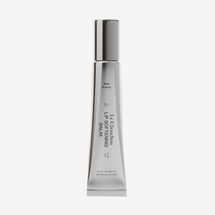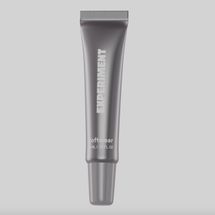
Pucker up!
I’ve been seeing more lip products that claim to be lip balms and lip exfoliators in one, like the Eadem Lip Softening Balm. But if it’s an exfoliator with an acid, how can it also be a moisturizer? Do these products actually work? —Carleigh
The lip category has exploded in the past few years. First, there were the overnight lip masks, then the lip oils, and then all those very shiny lip balms that had skin-care benefits but were as reflective as glosses. Now, get ready for balms that double as exfoliators. “I’m seeing this trend as well,” says cosmetic chemist Rob Robinson, founder of BeautyStat skin care and the chemist behind Rhode (and its popular Peptide Lip Treatment). “It appears to be an evolution of the lip scrub that not only exfoliates but moisturizes as well — thus, a two-in-one product.” And that brings us to your excellent question, Carleigh: Can a two-in-one exfoliating balm do both things as well as separate products would? Experts say it depends on the formula and, more specifically, which exfoliating ingredients it contains.
What is a lip-softening balm?
It’s a two-in-one product that hydrates and exfoliates. Unlike lip scrubs, which tend to have mechanical exfoliants (think sugar), these balms usually have chemical exfoliants like enzymes or alpha hydroxy acids (AHAs) such as lactic, mandelic, or hydroxycaprylic acids.
“What’s interesting is that a lot of ingredients that promote exfoliation also promote hydration,” says cosmetic chemist Alexis Padgett, the founder of Educated Mess. She gives the example of the two forms of lactic acid in Eadem Le Chouchou Exfoliating + Softening Peptide Lip Balm. “Lactic acid alone can promote exfoliation while boosting hydration, and this also has sodium lactate, another form that’s a component of skin’s natural moisturizing factor and aids in hydration retention,” says Padgett, who adds that she’s “obsessed” with the Eadem balm. “It’s so smoothing.” (FWIW, I second her endorsement; the balms are gorgeous and somehow keep softening and hydrating even after the shine wears off.)
Padgett also suggests looking for exfoliating balms with urea or hydroxycaprylic acid, an AHA that’s unlikely to cause irritation. You can find it in Experiment Beauty’s Softwear, which is actually billed as a three-in-one (hydration, exfoliation, and protection).
Robinson thinks lactic acid and mandelic acid also make sense in this new type of lip balm. And he says that other AHAs and enzymes can also work, as long as they’re used at levels that won’t cause irritation: “Our lips are thinner than the rest of our face, and they have a lot of nerve receptors, which makes them one of the most sensitive areas of the body.”
Tried-and-true lip-softening balms:
Can constantly using an exfoliator chap my lips?
If your lip balm has a high concentration of exfoliating ingredients or a particularly irritating AHA, applying it frequently might dry out your lips or cause them to chap. So, as this category of lip products expands, keep an eye on the ingredients lists. Some acids you may want to avoid include glycolic acid (it has a smaller molecular weight, so may be more irritating, according to Robinson) and beta hydroxy acids (BHAs) like salicylic acid. Padgett has seen BHAs in a few of the new exfoliating balms but is confused why brands are including it. “Sure, you’re getting exfoliation, but the whole benefit of BHA in comparison to AHA is the ability to get into pores and help keep them clear — and lips don’t have sebaceous glands or pores,” she says. “Plus, BHAs usually don’t have the added benefit of hydration.”
The other thing to pay attention to: The directions! It’s tempting to think that if one application of a product makes your lips soft, then using it more often will make them even softer. But that’s not always the case. Some of the lip-exfoliating balms are designed as once-daily or overnight treatments, and if you apply them frequently, you might overdo the exfoliation. But there’s no need to worry about addiction. “If you really enjoy the feel or the flavor, you might want to reapply them often — but that is not an addiction,” says Robinson.
Send your questions to [email protected]. (By emailing, you agree to the terms here.)




